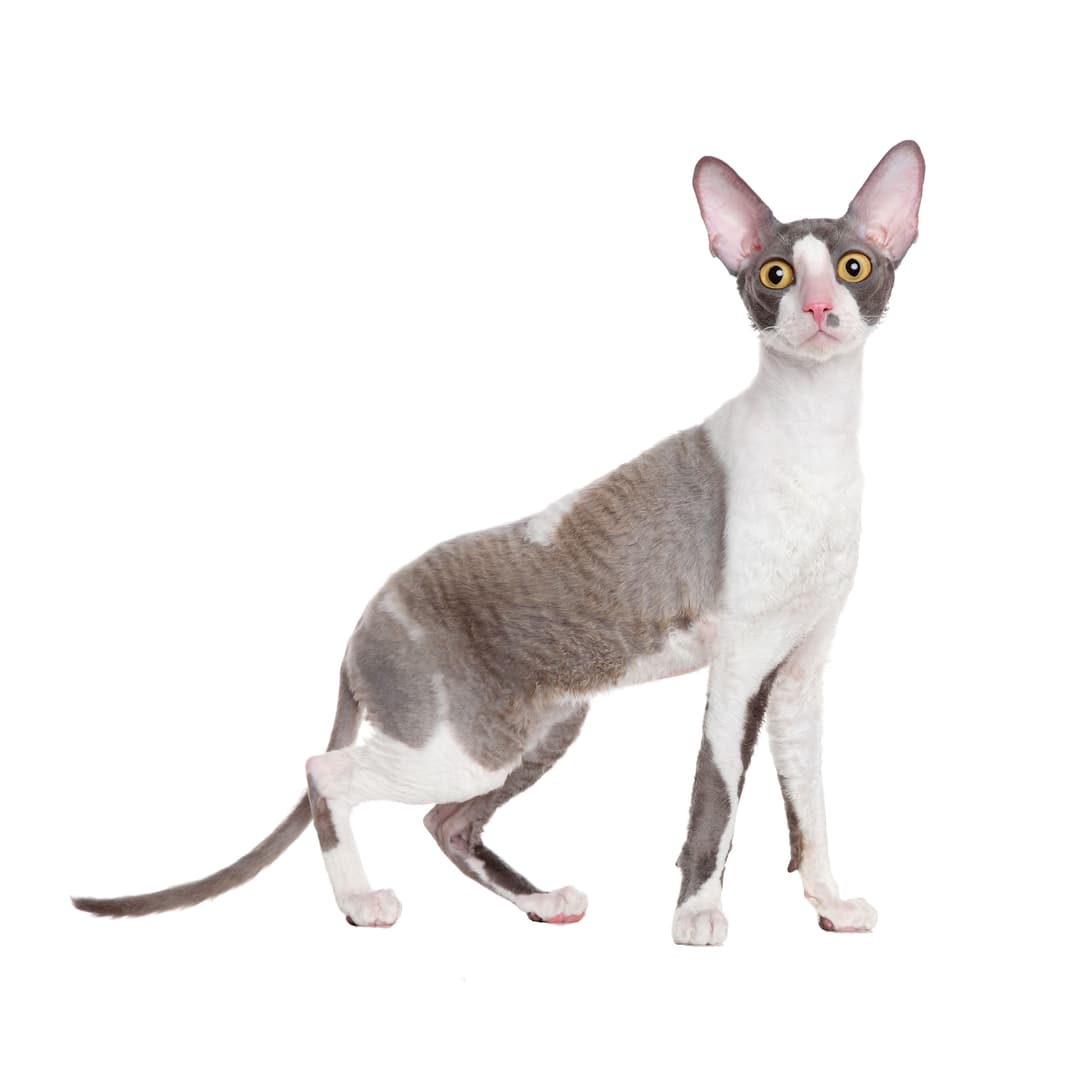Discover your cat's connection to this breed and 20 others


Discover your cat's connection to this breed and 20 others



This sleek and slender kitty has a big personality wrapped within its signature kinky-curled coat. Always at the ready for fun and play, the Cornish Rex is a cat that will keep you on your toes and thoroughly entertained.
The Cornish Rex has a small wedge-shaped head framed by large, wide-set ears. Their frame is likened to the Whippet dog breed, due to their similarly arched back, small waist, and long elegant legs. Though they are a small-to-medium sized cat, their frames pack a muscular punch and stand at the ready for pouncing, jumping to new heights, and modifying actions for quick turns and stops. Their "washboard" curly coats are very short and soft, with a silky texture that is often compared to that of a rabbit.
The Cornish Rex can be traced back to Cornwall, England in the 1950s. Their curly coats are the result of a natural genetic mutation, and a kitten sporting their signature coat was found among a litter of barn cats in the area. The kitten was said to have a lamb-like coat, and he grew into an elegantly slender cat with "bat" ears that resembles the lovely Cornish Rex breed we see today.
Cornish Rexes are known as jovial kitties who maintain a kitten-like energy into their older years. They absolutely love people and being in the thick of all the activity around the house. These clever cats are eager to learn new tricks such as playing fetch or even throwing (smaller) objects back at you! They can make wonderful companions and typically get along well with people and other pets. They do not tend to like being left alone for too long, so this is important to know in households with busy schedules.
The Cornish Rex has a beautiful short coat, but it does require maintenance as it constantly renews itself. Bi-weekly bathing is part of a good grooming routine. As with all cat breeds, oral health is very important, so it's important to establish both at-home brushing routines in addition to taking them to your veterinarian for regular wellness exams and professional dental cleanings. The breed can be prone to polycystic kidney disease (PKD), a common inherited genetic condition seen in cats. They may also be more sensitive to anesthesia, so this should always be discussed with a veterinarian before any procedures that may warrant it. Their short coats also make them more prone to certain skin sensitivities.
A kingly history. Did you know that "rex" in Latin means "king"? Apparently, the "Rex" title did not originate with cats; the title came about from King Albert I of Belgium, who entered his rabbits with curly fur into a show. These delightful creatures were rebuffed due to their non-conformity to the pedigree standards of the day, and were so marked as "rex" in connection with the king.
The International Cat Association (TICA) “Introduction to the Cornish Rex”
Recommended by top vets with decades of experience
21 breeds
64 genetic health markers
50 genetic trait markers
